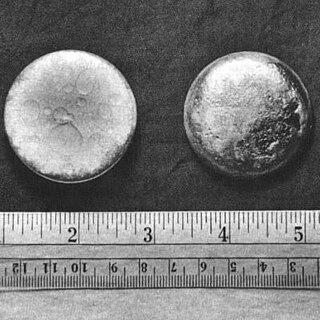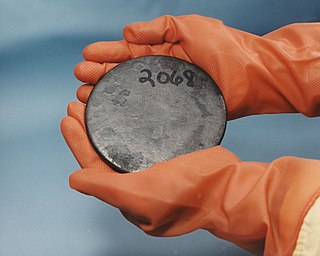An assault is the act of inflicting physical harm or unwanted physical contact upon a person or, in some specific legal definitions, a threat or attempt to commit such an action. It is both a crime and a tort and, therefore, may result in either criminal and/or civil liability. Generally, the common law definition is the same in criminal and tort law.
A citizen's arrest is an arrest made by a person who is not acting as a sworn law-enforcement official. In common law jurisdictions, the practice dates back to medieval England and the English common law, in which sheriffs encouraged ordinary citizens to help apprehend law breakers.
Extraterritorial jurisdiction (ETJ) is the legal ability of a government to exercise authority beyond its normal boundaries.

The Sexual Offences Act 2003 is an Act of the Parliament of the United Kingdom.
Culpable homicide is a categorisation of certain offences in various jurisdictions within the Commonwealth of Nations which involves the illegal killing of a person either with or without an intention to kill depending upon how a particular jurisdiction has defined the offence. Unusually for those legal systems which have originated or been influenced during rule by the United Kingdom, the name of the offence associates with Scots law rather than English law.
False arrest is a common law tort, where a plaintiff alleges they were held in custody without probable cause, or without an order issued by a court of competent jurisdiction. Although it is possible to sue law enforcement officials for false arrest, the usual defendants in such cases are private security firms.

The Offences against the Person Act 1861 is an Act of the Parliament of the United Kingdom of Great Britain and Ireland. It consolidated provisions related to offences against the person from a number of earlier statutes into a single Act. For the most part these provisions were, according to the draftsman of the Act, incorporated with little or no variation in their phraseology. It is one of a group of Acts sometimes referred to as the criminal law consolidation Acts 1861. It was passed with the object of simplifying the law. It is essentially a revised version of an earlier consolidation Act, the Offences against the Person Act 1828, incorporating subsequent statutes.
Murder is an offence under the common law of England and Wales. It is considered the most serious form of homicide, in which one person kills another with the intention to cause either death or serious injury unlawfully. The element of intentionality was originally termed malice aforethought although it required neither malice nor premeditation.
In UK criminal law, the term "offence against the person" usually refers to a crime which is committed by direct physical harm or force being applied to another person.

The Public Order Act 1986 is an Act of the Parliament of the United Kingdom. It creates a number of public order offences. They replace similar common law offences and parts of the Public Order Act 1936. It implements recommendations of the Law Commission.
Rape is a type of sexual assault initiated by one or more persons against another person without that person's consent. The act may be carried out by physical force, or where the person is under threat or manipulation, or with a person who is incapable of valid consent. It is the name of a statutory crime in jurisdictions such as England and Wales, Northern Ireland, Scotland, California, and New York, and is a legal term of art used in the definition of the offence of sexual violation in New Zealand.

In English law, causing criminal damage was originally a common law offence. The offence was largely concerned with the protection of dwellings and the food supply, and few sanctions were imposed for damaging personal property. Liability was originally restricted to the payment of damages by way of compensation.
An immigration officer is a law enforcement official whose job is to ensure that immigration legislation is enforced. This can cover the rules of entry for visa applicants, foreign nationals or those seeking asylum at the border, detecting and apprehending those that have breached the border and removing them, or pursuing those in breach of immigration and criminal laws.

The British Nationality Act 1948 was an Act of the Parliament of the United Kingdom that created the status of "Citizen of the United Kingdom and Colonies" (CUKC) as the national citizenship of the United Kingdom and its colonies.
The Convention on Offences and Certain Other Acts Committed on Board Aircraft, commonly called the Tokyo Convention, is an international treaty, concluded at Tokyo on 14 September 1963. It entered into force on 4 December 1969, and as of 2015 has been ratified by 186 parties.
The powers of the police in England and Wales are defined largely by statute law, with the main sources of power being the Police and Criminal Evidence Act 1984 and the Police Act 1996. This article covers the powers of police officers of territorial police forces only, but a police officer in one of the UK's special police forces can utilise extended jurisdiction powers outside of their normal jurisdiction in certain defined situations as set out in statute. In law, police powers are given to constables. All police officers in England and Wales are 'constables' in law whatever their rank. Certain police powers are also available to a limited extent to police community support officers and other non warranted positions such as police civilian investigators or designated detention officers employed by some police forces even though they are not constables.

In traffic laws, a hit-and-run is the act of causing a traffic accident and not stopping afterwards. It is considered a supplemental crime in most jurisdictions.
In the United Kingdom, there are time limits after which court actions cannot be taken in certain types of cases. These differ across the three legal systems in the United Kingdom. The United Kingdom is almost unique in the world in that it has no statute of limitations for any criminal offence tried above magistrate level.
This page is about the penalties juveniles are subject to if found guilty of trafficking Cannabis. Most juveniles suffer the same, or very similar, penalties as adults. However this varies between countries, cultures and according to where the nation's minimum age of criminal responsibility lies. Information and laws regarding minors are difficult to find as they are usually classified or protected. This is due to laws preventing crimes committed, under the minimum age of criminal responsibility, being kept on a criminal record.










